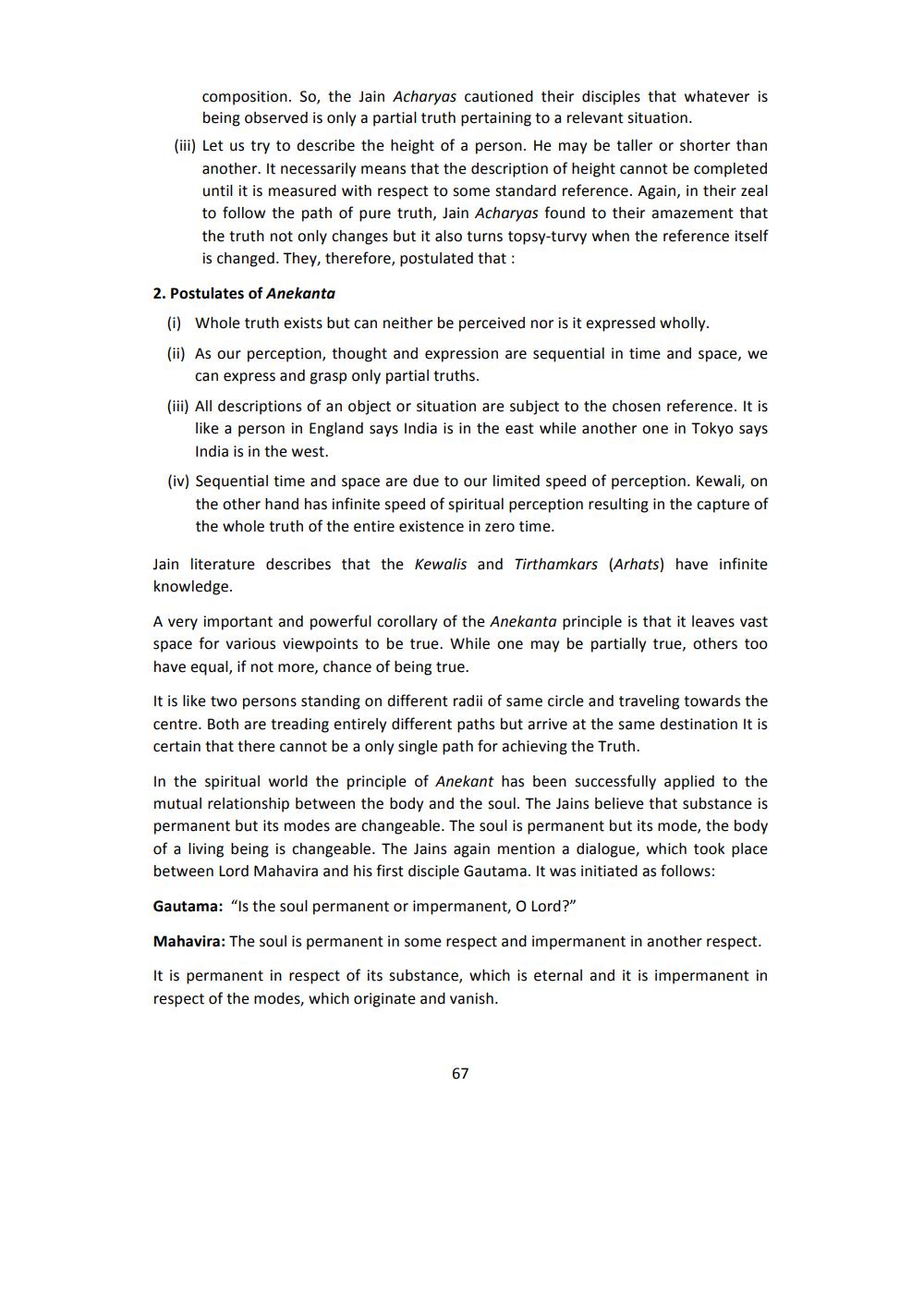________________
composition. So, the Jain Acharyas cautioned their disciples that whatever is
being observed is only a partial truth pertaining to a relevant situation. (iii) Let us try to describe the height of a person. He may be taller or shorter than
another. It necessarily means that the description of height cannot be completed until it is measured with respect to some standard reference. Again, in their zeal to follow the path of pure truth, Jain Acharyas found to their amazement that the truth not only changes but it also turns topsy-turvy when the reference itself is changed. They, therefore, postulated that:
2. Postulates of Anekanta
(i) Whole truth exists but can neither be perceived nor is it expressed wholly. (ii) As our perception, thought and expression are sequential in time and space, we
can express and grasp only partial truths. (iii) All descriptions of an object or situation are subject to the chosen reference. It is
like a person in England says India is in the east while another one in Tokyo says
India is in the west. (iv) Sequential time and space are due to our limited speed of perception. Kewali, on
the other hand has infinite speed of spiritual perception resulting in the capture of the whole truth of the entire existence in zero time.
Jain literature describes that the Kewalis and Tirthamkars (Arhats) have infinite knowledge.
A very important and powerful corollary of the Anekanta principle is that it leaves vast space for various viewpoints to be true. While one may be partially true, others too have equal, if not more, chance of being true.
It is like two persons standing on different radii of same circle and traveling towards the centre. Both are treading entirely different paths but arrive at the same destination It is certain that there cannot be a only single path for achieving the Truth.
In the spiritual world the principle of Anekant has been successfully applied to the mutual relationship between the body and the soul. The Jains believe that substance is permanent but its modes are changeable. The soul is permanent but its mode, the body of a living being is changeable. The Jains again mention a dialogue, which took place between Lord Mahavira and his first disciple Gautama. It was initiated as follows:
Gautama: "Is the soul permanent or impermanent, O Lord?"
Mahavira: The soul is permanent in some respect and impermanent in another respect.
It is permanent in respect of its substance, which is eternal and it is impermanent in respect of the modes, which originate and vanish.




